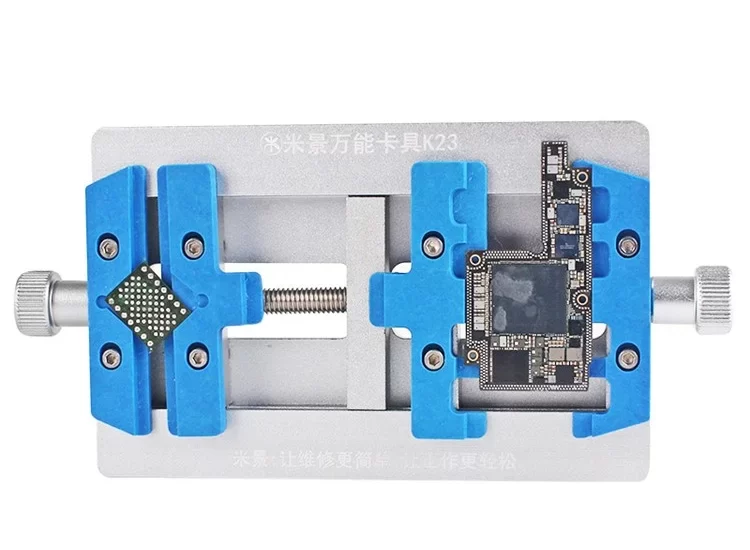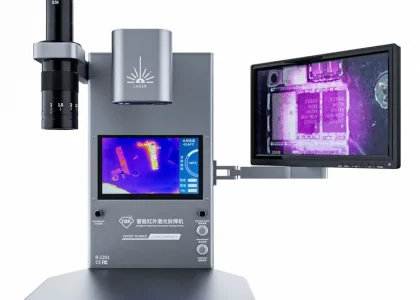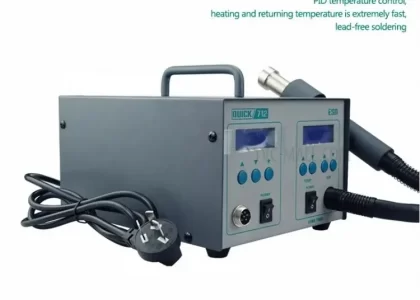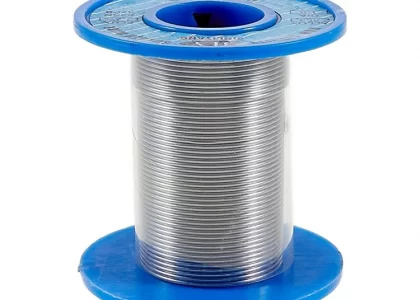If you’re an electronics enthusiast, technician, or DIY hobbyist, you know that having the right tools can make or break your projects. Among the most critical tools in your arsenal are a soldering and desoldering station, a PCB board holder, and a heat station. These tools not only ensure precision and efficiency but also help maintain the quality and durability of your electronic projects. Let’s dive into how each of these tools plays a vital role in your workbench.
Soldering and Desoldering Station: The Heart of Electronics Work
A soldering and desoldering station is an indispensable tool for anyone working with electronic components. This multifunctional device allows you to both solder and desolder components on a PCB (Printed Circuit Board) with ease and precision.
Precision and Versatility: A good soldering and desoldering station provides precise temperature control, which is crucial for working with sensitive electronic components. It ensures that solder joints are strong and reliable while minimizing the risk of damaging the board or components.
Efficiency: These stations often come with a range of tips and nozzles, allowing you to tackle various tasks, from large joints to delicate SMD (Surface-Mount Device) components. The desoldering function is especially useful for repairs, allowing you to remove components cleanly and quickly.
Ease of Use: Modern soldering and desoldering stations are designed with user-friendly interfaces and ergonomic tools, making them accessible even to beginners. Whether you’re assembling a new project or repairing an existing one, these stations make the process smoother and more efficient.
PCB Board Holder: Stability and Precision in Your Work
Working on a PCB requires stability and precision, which is where a PCB board holder comes into play. This tool holds your board securely in place, freeing up your hands and allowing you to focus on soldering or desoldering with accuracy.
Stability: A PCB board holder keeps your board steady, preventing any unwanted movement that could lead to errors or damage. This is particularly important when working with fine-pitch components or performing intricate soldering tasks.
Adjustability: Most PCB holders are adjustable, accommodating different board sizes and angles. This flexibility ensures that you can position your workpiece in the most comfortable and effective way, reducing strain and improving your overall efficiency.
Convenience: With a PCB board holder, you can work more comfortably and efficiently, especially during lengthy soldering sessions. It allows you to focus on your technique without worrying about the board slipping or moving.
Heat Station: The Power Behind Component Rework
A heat station is another critical tool, especially when dealing with SMD components or performing rework on a PCB. It provides controlled heat to remove or reflow components without causing damage to the board.
Controlled Heating: Heat stations offer precise control over temperature and airflow, which is essential for safely reworking components on a PCB. This ensures that components are heated evenly, reducing the risk of thermal damage.
Versatility: Whether you’re removing a component or reflowing solder joints, a heat station can handle a variety of tasks. It’s particularly useful for working with heat-sensitive components that require careful handling.
Efficiency: Using a heat station speeds up the rework process, allowing you to quickly and safely remove or replace components. This is invaluable for both repair work and prototyping, where time and precision are of the essence.
Conclusion
Having a well-equipped workbench with tools like a soldering and desoldering station, a PCB board holder, and a heat station is essential for anyone serious about electronics. These tools provide the precision, stability, and control needed to tackle a wide range of projects, from simple repairs to complex assemblies. By investing in these essential tools, you’ll be able to work more efficiently, reduce errors, and ultimately produce higher-quality electronic devices. Whether you’re a seasoned professional or just starting out, these tools will enhance your capabilities and improve your overall work experience.






